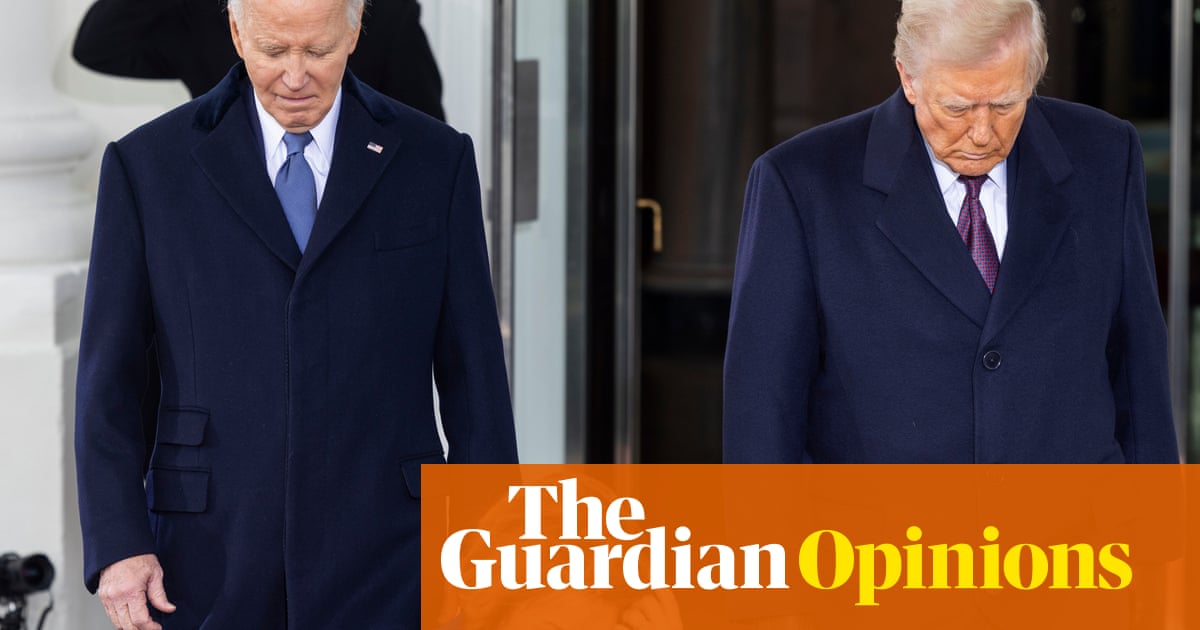With anew book outabout Joe Biden’s failed re-election campaign, a media reckoning is in full swing.
It goes something like this: mainstream journalism failed the voters. Reporters were complicit; they didn’t tell us how much the elderly president had declined. They didn’t dig beneath the surface of whatBidenaides were doing as they covered up the physical and cognitive decline of the leader of the free world.
And some of that is valid, no doubt. Under fire in recent days,CNN’s Jake Tapper, co-author of Original Sin: President Biden’s Decline, Its Cover-up, and His Disastrous Choice to Run Again, has even nodded to his own role in downplaying Biden’s increasing frailty.
There’s plenty of blame to go around for Biden’s ultimate loss – and the horrors that it brought the whole world in the election of Donald Trump to a second term.Bruce Springsteen laid it outto a concert audience last week as he opened his European tour: “My home, the America I love, that has been a beacon of hope and liberty for 250 years, is currently in the hands of a corrupt, incompetent and treasonous administration.”
As a media critic, I’m always happy to see a good reckoning for the mainstream press.
But this one makes me wonder. When is the reckoning coming for the failures to cover Trump effectively?
At what point will there be a general acknowledgment and some serious self-scrutiny about the way big media failed to adequately convey what would happen if Trump were elected again?
“I have a hard time watching journalists high-five each other over books on [the White House] covering up for Biden,”wrote the political scientist and scholar Norman Ornstein, one of the sanest commentators about politics in recent years.
It’s “a diversion from their own deep culpability in Trump’s election”.
What would be the elements of this reckoning?
Here’s Ornstein again on what the mainstream press wrought with their hubris and their failures.
“False equivalence, normalizing the abnormal, treating Trump as no real danger were the norm, not the exception.”
From 2015 – when Trump first declared his candidacy for president – right through the 2024 election, the press in general didn’t get across the reality.
When the New York Times infamously set the tone in 2016 by vastly overplaying the supposedly shocking scandal of Hillary Clinton’s use of a personal email server, that was only the beginning. But it was a consequential beginning since, even in our fragmented and polarized media system, the Times was then, and is now, still extremely influential.
I’ve long believed that Times editors were so dedicated to proving that they could be tough on Candidate Clinton – convinced she would be the president and that Trump was no real threat – that they went way overboard.
Was the fault for electing Trump entirely theirs or even the fault of the mainstream media in general led by them? Of course not. But they played a destructive role, one that has never been adequately acknowledged.
Then, during Trump’s first term – and especially during the 2024 campaign – the mainstream press constantly normalized the would-be autocrat.
The ever-so-apt term “sanewashing” was born to describe what was going on, and the media’s role. Talk about a cover-up. Trump’s rallies were exercises in lunacy, as he spun tales about sharks and Hannibal Lecter, rambling for hours.
But the coverage seldom came close to getting across the reality. Instead, we’d hear descriptions about his “freewheeling” style or “brash” approach.
Sign up toThis Week in Trumpland
A deep dive into the policies, controversies and oddities surrounding the Trump administration
after newsletter promotion
As for the autocracy in waiting, there were excellent stories about the blueprint for his second term known asProject 2025, but it was far from obvious whether news leaders stopped to ask if voters really understood the stakes. Now we see the Trump administration quite literally enacting that same Project 2025 that he claimed he barely knew anything about.
Horserace coverage prevailed, day after day. And then, when Biden’s decline became impossible to ignore – after that earth-shattering presidential debate last June – news organizations changed their tune.
For weeks, there was nothing but “hey, Biden is old” coverage, once again failing to put the emphasis where it belonged: on the dangers of a Trump presidency.
Heads of news organizations and reporters themselves are fond of distancing themselves from their real mission at times like these: to communicate the reality of an election’s actual stakes. Instead, they talk in lofty terms of merely covering the news, as if their daily decisions about the volume, choice and tone of coverage didn’t matter.
It certainly mattered just before the 2016 election, when the entiretop of a front page– and many an evening newscast – were given over to the reigniting of the justice department’s investigation of Clinton’s emails.
It certainly mattered when influential opinion sections were ceaselessly baying about Biden’s cognitive decline last summer in order to force him out of the race.
Despite wishful thinking, there’s no such thing as “just the facts” or complete neutrality, because editorial decisions and reporting choicesalwaysmatter.
What do you investigate? What is the precise wording of that news alert? How prominently do you display that story? Whom do you quote and to whom do you grant anonymity? What photo do you choose? Do you use terms like “straining the bounds of propriety” to describe what looks more like a bribe?
So if the media were going to put their thumb on the scale – as they inevitably do – they ought to have done so in defense of democracy, the rule of law and human decency.
The failure to do so is playing out in our shattered world, and at a frightening pace.
That’s a reckoning we ought to have, but I doubt we ever will.
Margaret Sullivan is a Guardian US columnist writing on media, politics and culture
